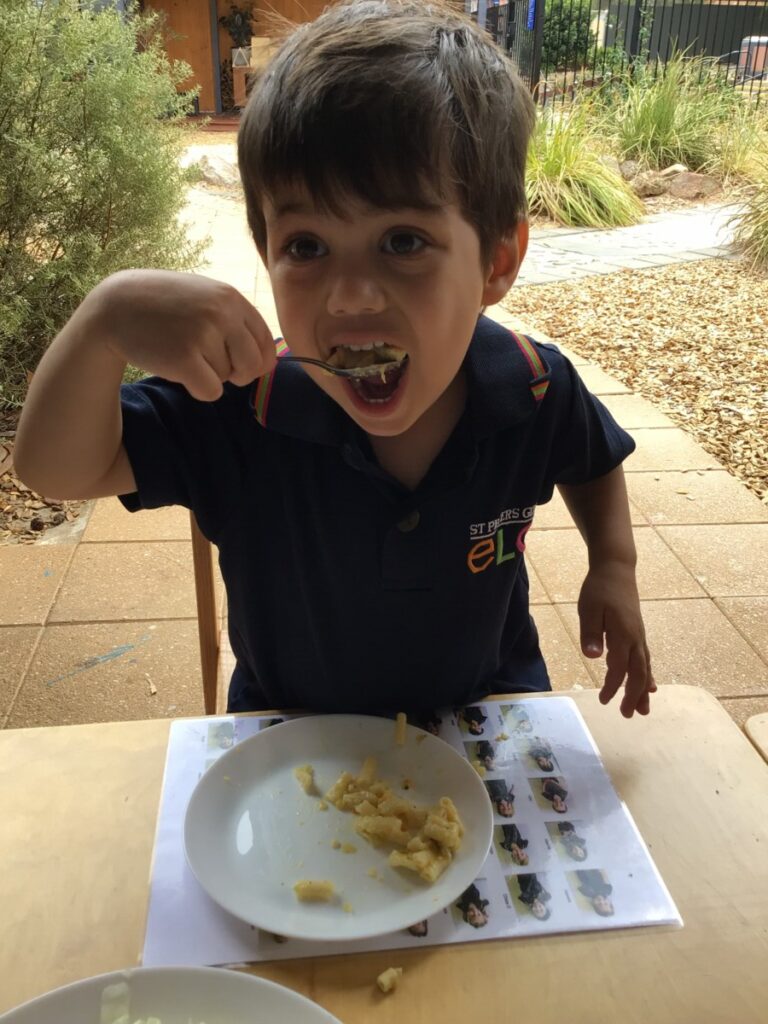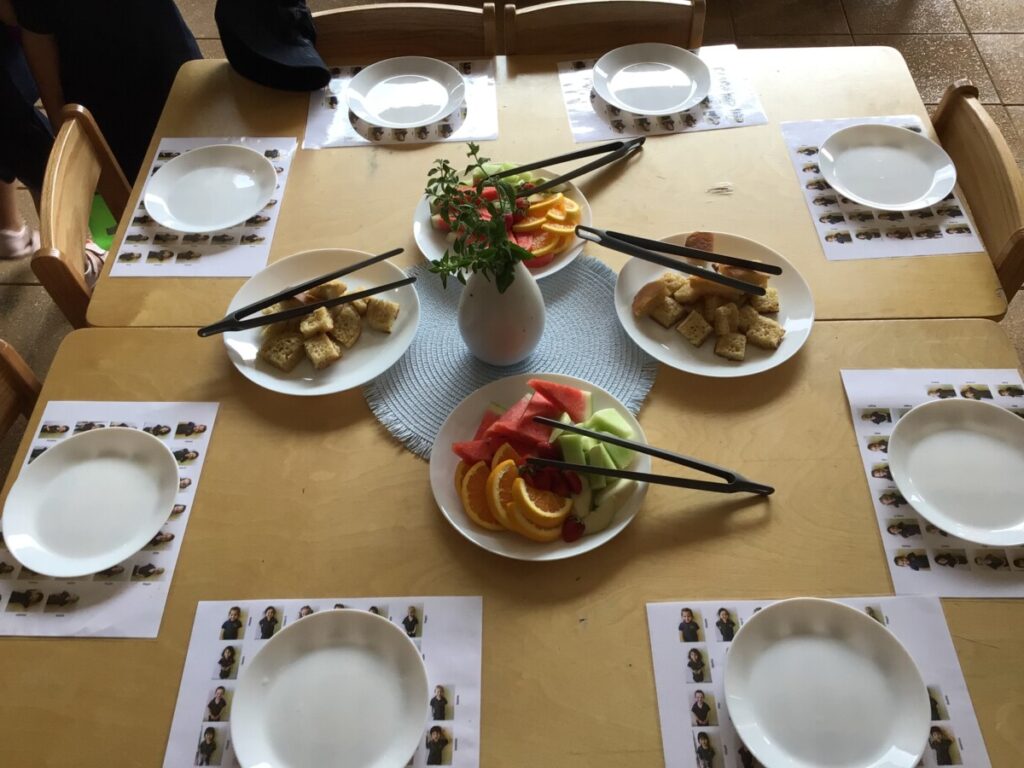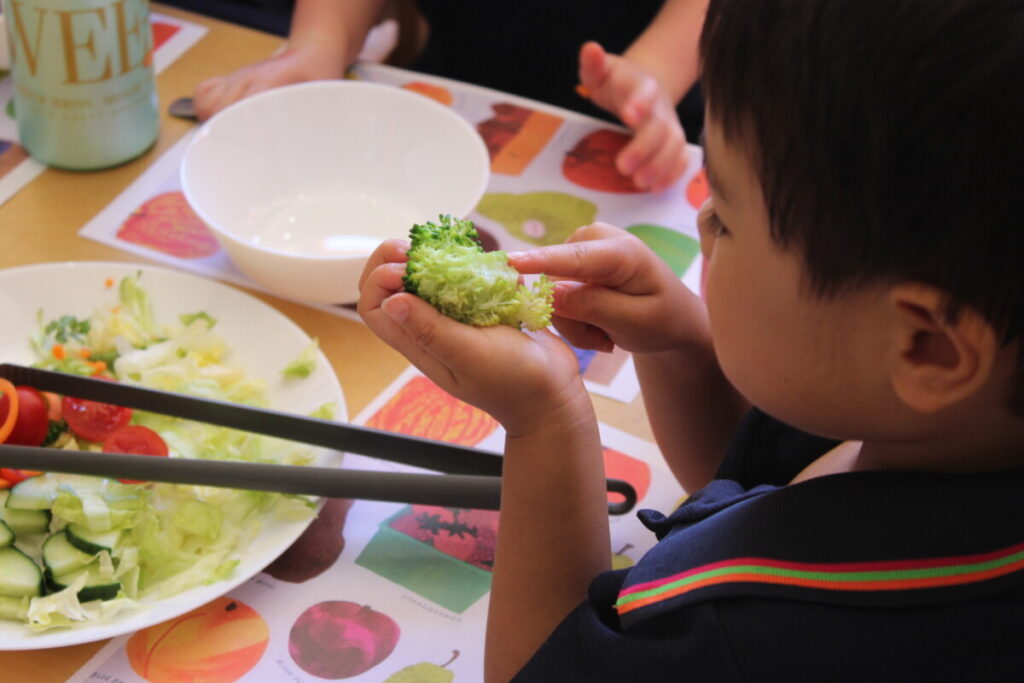News from Learning Community 2
Children in Learning Community 2 have had an exciting start to their year, as the beginning of Term 1 coincided with our vibrant Lunar New Year celebrations. This special occasion provided a meaningful opportunity for children to explore our unit of inquiry, Belonging Can Support Wellbeing, by deepening their understanding of different cultures and the rich diversity that makes our community so special. For many of our students, this is a time where they feel immense pride in being able to share a part of their unique culture. For children, being able to not only see themselves represented but celebrated within their ELC community creates a long-lasting sense of happiness and is a vital step in supporting them to feel as though they truly belong.
Through our inquiry approach, opportunities for targeted literacy and numeracy experiences have been interwoven across our explorations. Children have enjoyed unpacking the deep symbolism behind specific colours and why it is the ‘Year of the Snake.’ Through the language of light, children have explored patterning on the light table and experimented with using the overhead projector. Through group discussions about what a new year involves, children have begun to familiarise themselves with the number 2025. To further develop their mathematical knowledge, they have enjoyed focussing on the different ways that the number ‘25’ can be represented using tens frames and units. These mathematical provocations also support children’s number recognition, ability to count using 1:1 correspondence and to subitise quantities.
Children have also studied the difference between wavy and straight lines. They have been supported to practice their drawing technique through the graphic language, using textas of varying thickness to draw snakes. These intentional experiences have supported the development of children’s pre-writing skills by strengthening their pencil grip and improving their fine motor skills.
Learning Community 2 Teachers
Chloe Skoss, Tori McDonnell and Dot Kelly
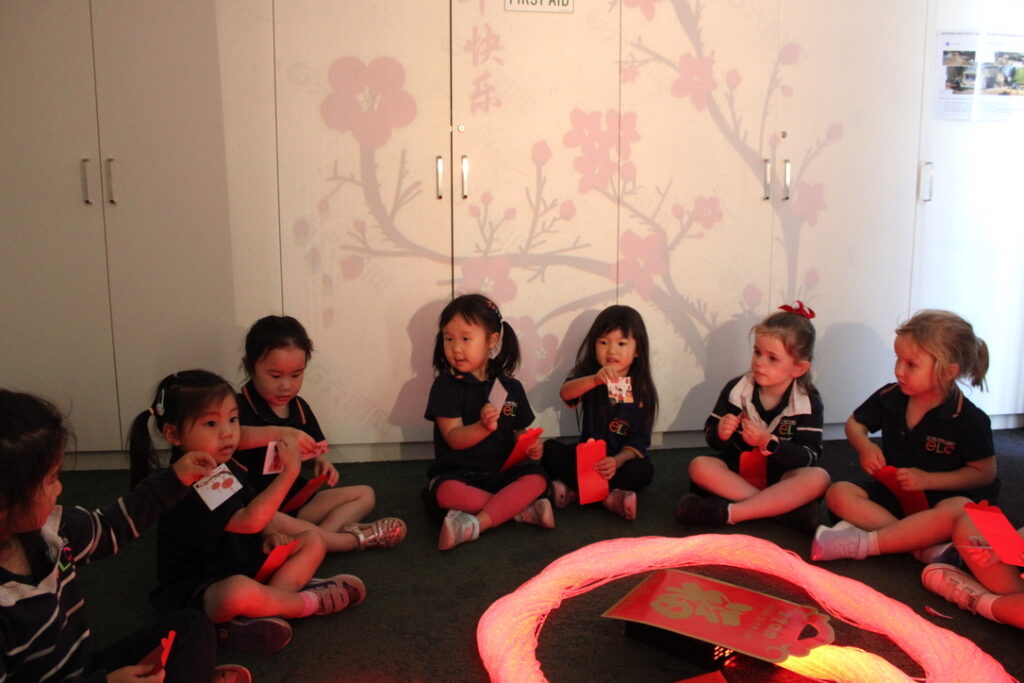
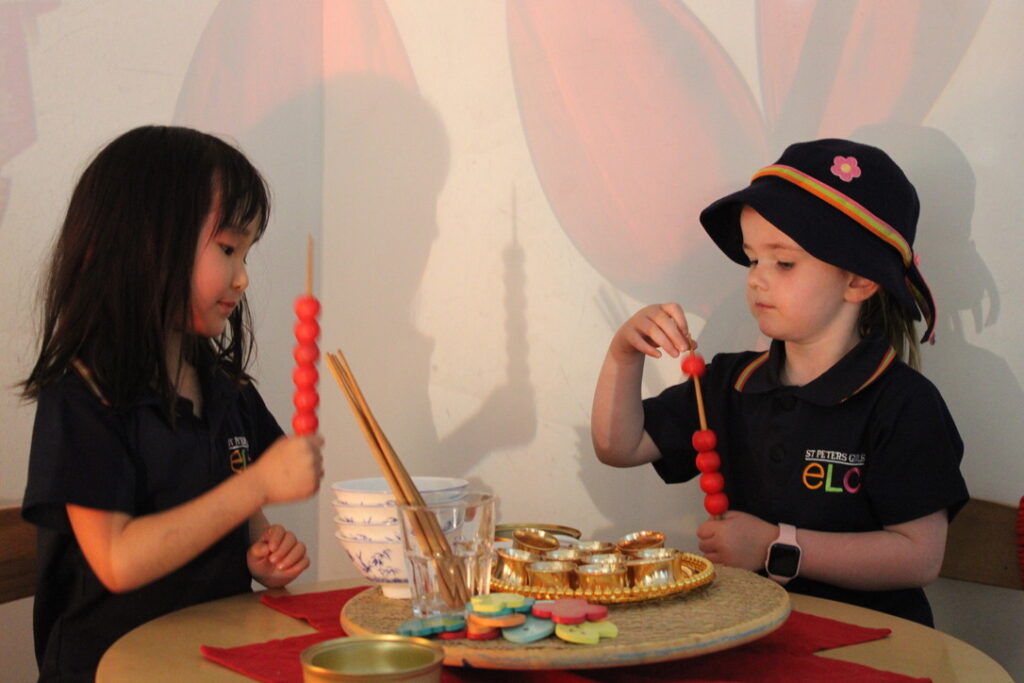

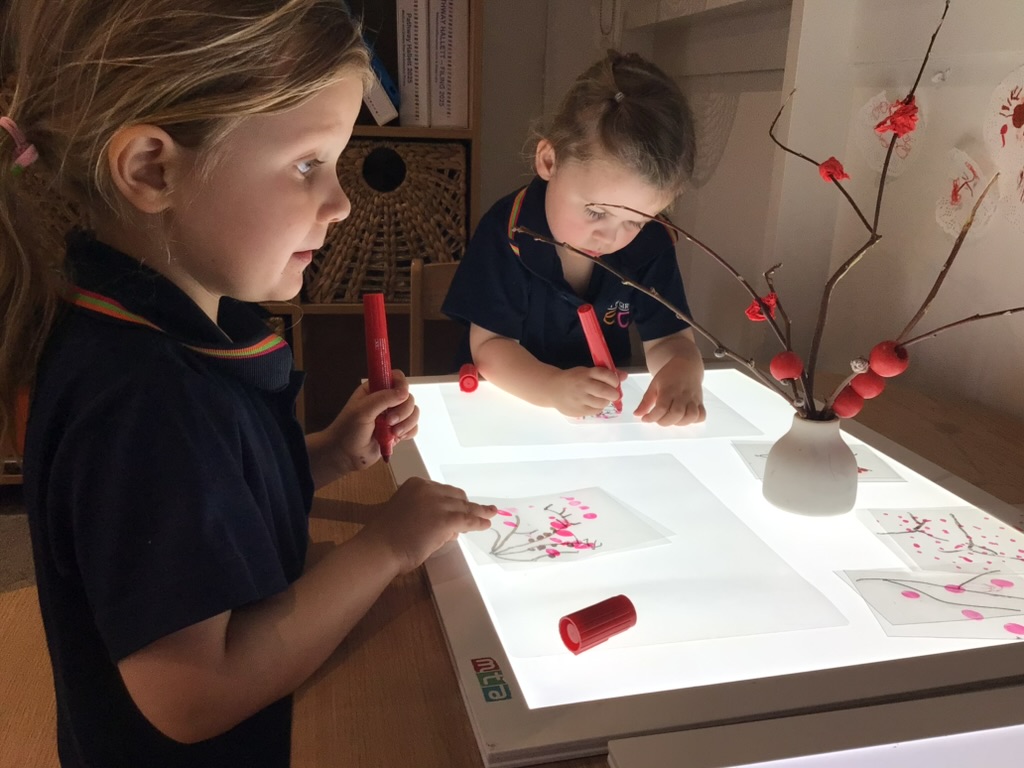
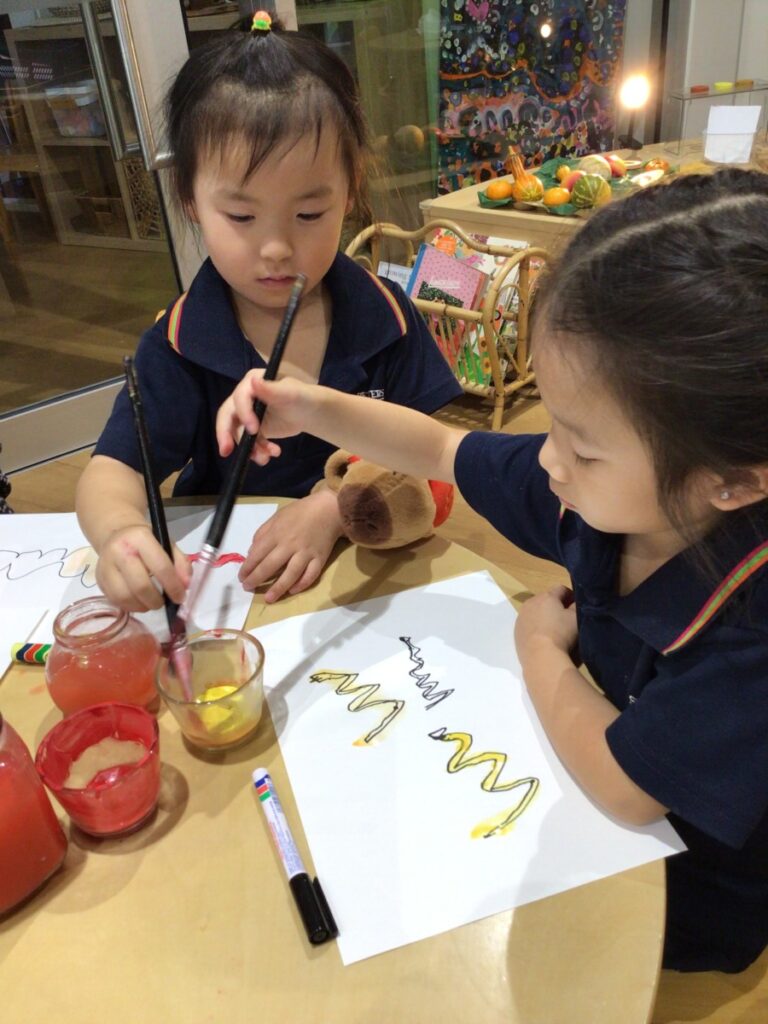
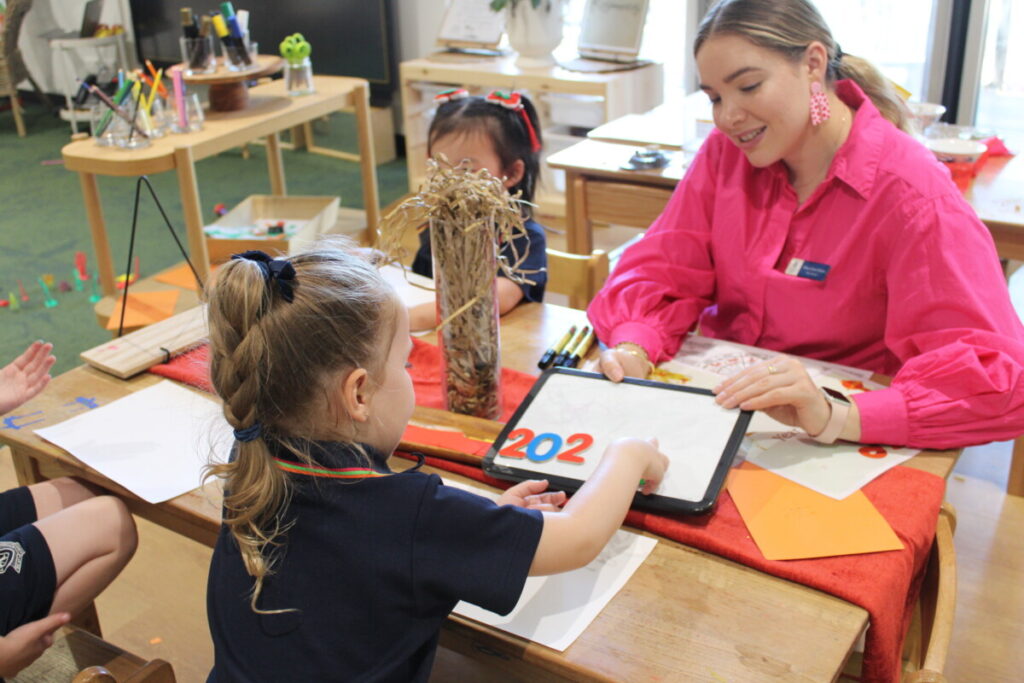
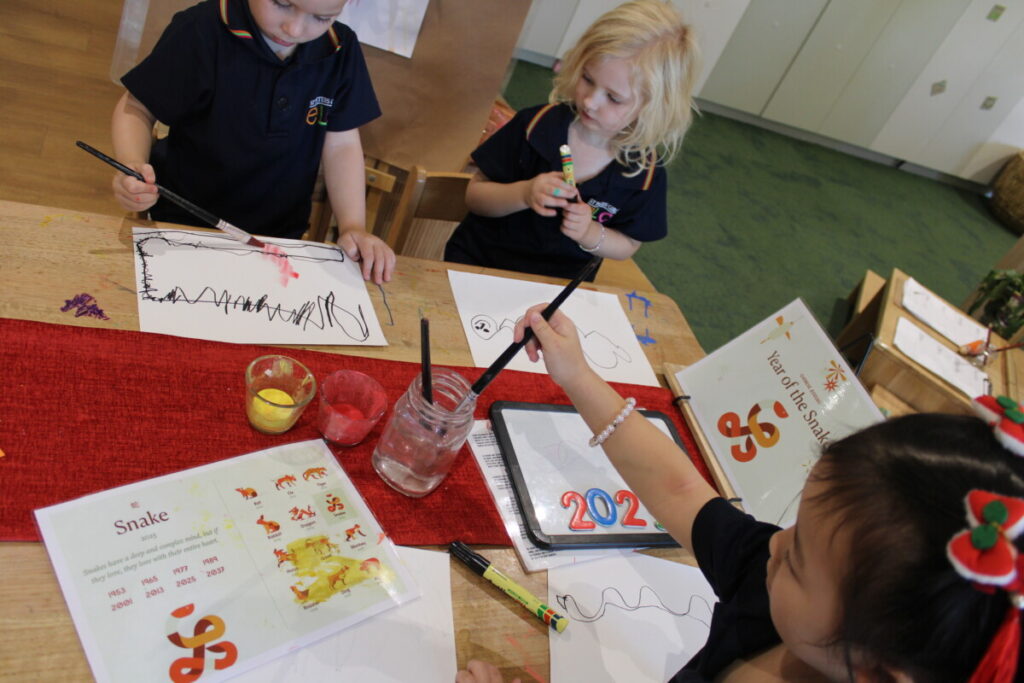
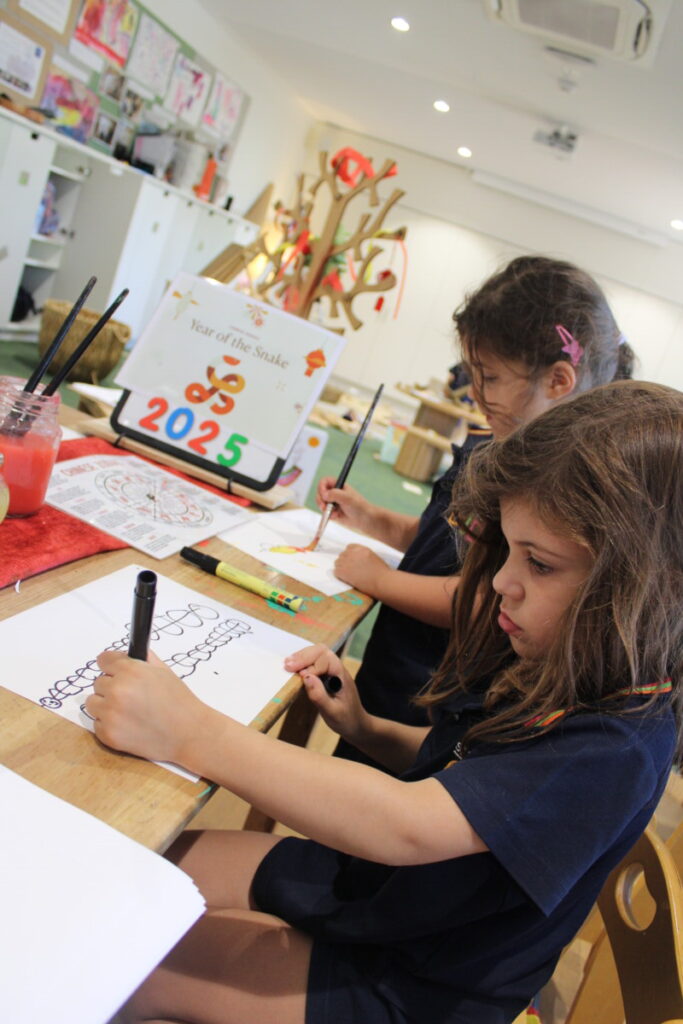
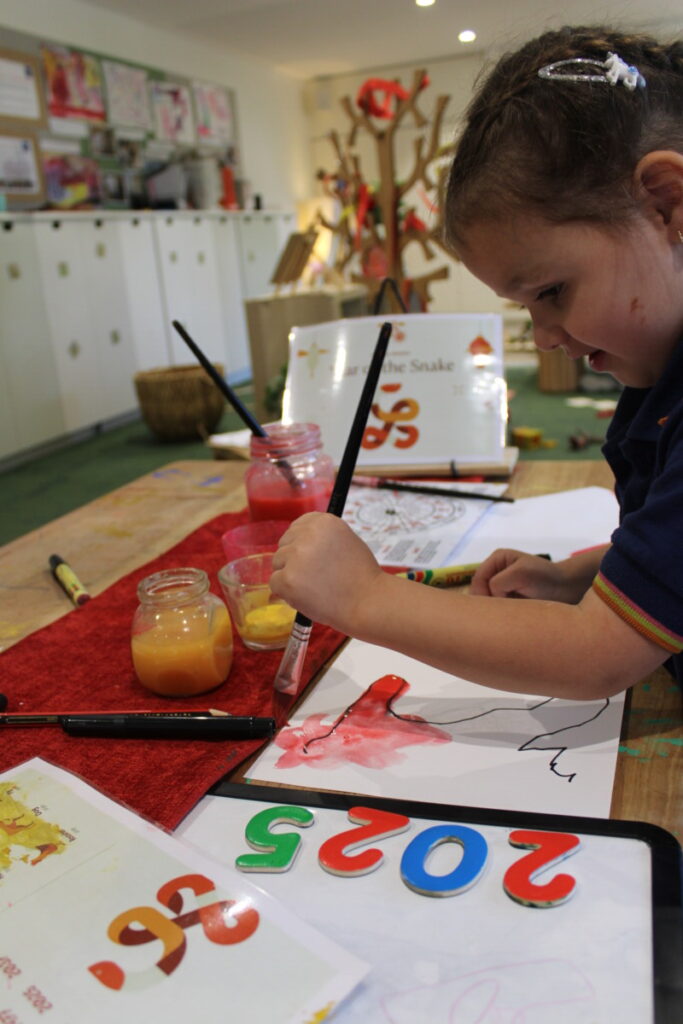
Nurturing Positive Relationships with Food
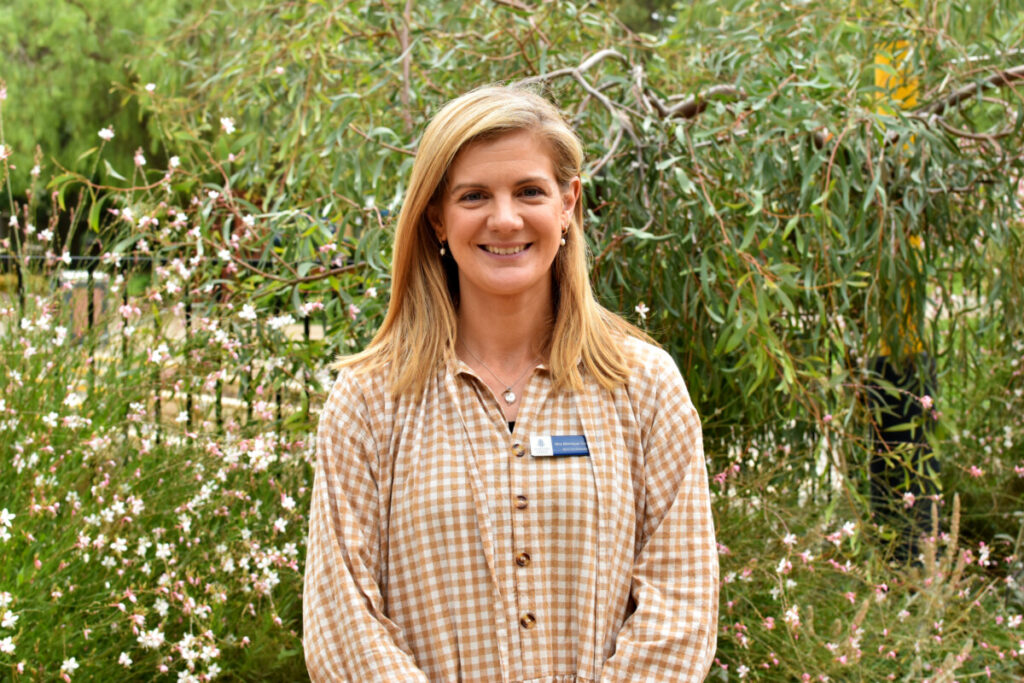
This term, our central idea is Belonging can Support Wellbeing, which reflects our core priorities for every child and family in our ELC. The introduction of our full food offering provides an opportunity to nurture children’s sense of belonging. By eating together as a learning community, children are encouraged to connect with one another in a shared family style setting. This relaxed, unhurried environment nourishes children both physically and emotionally. The use of metal utensils and ceramic dishes supports the ELC’s commitment to sustainability. It also demonstrates our respect for children’s competence, and an opportunity to develop resilience in managing when items occasionally but inevitably break.
Good nutrition plays a crucial role in children’s development and wellbeing. From birth, children are intuitive eaters, instinctively eating as much as their bodies require for healthy development. However, eating a range of foods is a skill that may require practice and patience, like sleeping and walking.
Satter’s Division of Responsibility is recognised as best practice for supporting children to become competent eaters. It recommends that adults are responsible for providing healthy food in a consistent, calm environment where children are supported to develop food skills with growing independence. Children are responsible for deciding what to eat and how much. This reflects the importance of autonomy and choice, which allows children to learn about their hunger cues and develop a positive relationship with food and eating.
In early childhood, some fussiness is typical, as toddlers’ growth and appetite slow, nutritional requirements change, and independence increases. Our response to this as parents and educators influences the child’s relationship and attitude to food and eating.
Environments that encourage exploration and curiosity support children to feel empowered rather than pressured. At ELC, we provide opportunities to investigate, play, discuss, grow, select, and cook a range of foods, which builds the foundation for lifelong healthy eating experiences.
Tips for parents:
- Create a calm, consistent, distraction-free family mealtime environment
- Regularly offer new foods alongside preferred foods
- Involve children in grocery shopping, meal planning and cooking
- Begin with small portions, offering more if required
- Avoid force-feeding and food rewards
- Set a good example by eating a variety of healthy foods yourself
- Use positive language and keep trying!
Although fussy eating can be a typical phase in children’s development, if you have any concerns, please speak to our ELC Wellbeing Leader, Monique Gannon. Please seek medical advice from your GP if you are concerned about your child’s swallowing, nutrition, or additional eating needs.
Monique Gannon
ELC Wellbeing Leader
